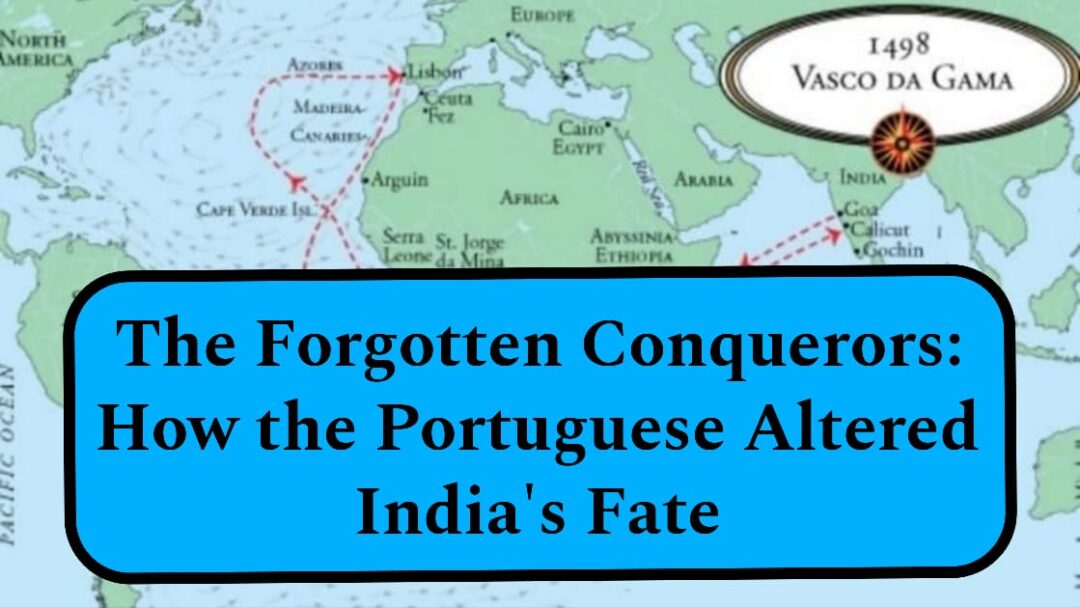Portuguese Navigator Vasco da Gama landed on our shores 500 years ago. When Gama reached Kozhikode, he came with hopes of better trade. His intention was not to find a new nation; it was purely commercial. He was not a scientist or a researcher—perhaps more of a trade investigator. If he had been interested in ruling, he might have succeeded as a ruler of India. Instead, he was simply a navigator sent by King Manuel. In fact, even today in Portuguese stories, he is not considered the founder of India, nor is he a hero in their narratives.
Gama accidentally discovered India and, by establishing a new hub for trade, must have faced many challenges. As a navigator, he was not interested in learning new languages, cultures, or ways of life. His mission was different: to spread fear and buy spices at low prices.

Interestingly, the locals were unaware of the threat he posed. Instead, they were curious to see the people who arrived in large ships. There was no resistance from the locals; they were simply intrigued by these foreigners. To them, it must have felt like new friends had arrived from a distant world. Everything was new, so they accepted the foreigners and pleased the kings by offering gifts.
Gama also faced challenges from his own country. He had competitors and rivals who sought wealth. Even after discovering India, King Manuel did not give him much importance. Other fortune seekers soon followed Gama to India. To secure his position, Gama became more ruthless than any king. He mercilessly attacked locals and used different types of weapons to threaten our people. Unlike the British, he believed that brutal pain was the only solution to control others. Even then, there were spies among our own people who worked against us, providing information to Gama in exchange for money and positions.

Those who followed Gama—such as Mr. Albuquerque, Mr. Cabral, and Almeida—were even more dangerous. They spread fear among the locals. Albuquerque maintained his power with the support of Timoji, a local Hindu, who wanted to keep the Moors away and thus supported the Portuguese. The Portuguese never wished to return to their homeland. The reason was simple: here, they held positions of power like Governor, but in their own country, they were just navigators. Gama and Albuquerque both chose not to return. Their deaths were tragic; Gama stayed in India to give a final farewell to his brother, who died of malaria. Gama himself never went back to his homeland. King Manuel used all of them for his own benefit, without giving them any real recognition.

It is interesting that, like Gama, many people were sent in different directions to find new avenues of trade. Gama was just one navigator among many for King Manuel. However, in India, because it was documented, Gama is remembered as the first foreigner to come here, even though the Moors were already present, simply trading. Remarkably, the Portuguese ruled Goa until 1961—Goa was under their rule for 450 years. There was little resistance to their presence, and only after four decades did Goa, Daman, and Diu become truly integrated into India.
India was rich by any measure. The poor Portuguese saw India much as Indians today see Dubai. Today, compared to many European countries, we are considered a poor country. Our education system was not organized, but it was stable. Our food habits were not showy, but they were healthy. Our spices were rich and powerful. We were wealthy. However, after colonization, we were greatly influenced by their culture, food habits, education, way of living, and, most importantly, their intent to forcefully convert us to their religion. They made us believe that what we owned was inferior.

We had a system of work culture, and actually, there was no rigid caste system. In fact, “caste” is a Portuguese word given by them. They misunderstood our social divisions, which were originally based on occupation. Although there were some upper and lower distinctions in society, it was the Portuguese who injected the major poison of casteism. Ironically, their own society had even worse social divisions. They sent those unwanted in their country to India to control us mercilessly.
The countdown to our decline began with those navigators. They planted the seeds of greed, infighting, and division. Money became all-important, and differences in education and religion took root.


Very informative
“Thanks for sharing !